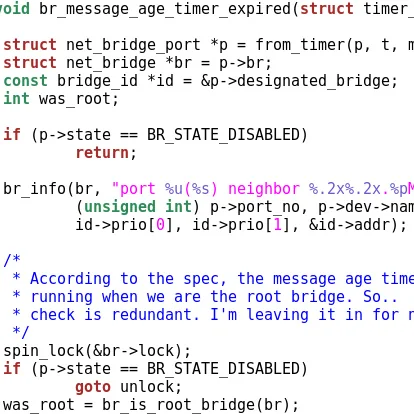Other Letdowns For Linux / Open-Source Users From 2015

Complementing the earlier list, here's some more that we'll hopefully see addressed or fixed up in 2016:
Building The Linux Kernel With LLVM Clang
While there's still some patches flowing into the mainline kernel for making it easier to build the Linux kernel with Clang rather than GCC, it still appears to be some patches away of being a mainline success... The status continues to be tracked at llvm.linuxfoundation.org but sadly not much progress to report on in 2015. In fact, the latest news on the site is from 2014.
Even if you swear by GCC, many are after seeing Clang be able to build the Linux kernel for faster compile times. Additionally, it's a good exercise for ensuring the kernel code is portable and can be built under more compilers than just the GNU Compiler Collection. LLVM also has some excellent static analysis tools and more that can be of benefit in tracking down potential kernel issues.
FreeSync / Adaptive Sync
AMD FreeSync and NVIDIA G-SYNC has been catching on with Windows gamers for improving battery life, reducing tearing, and ensuring a stutter-free experience, but sadly there hasn't been much to report on in this space for Linux gamers.
OpenShot / Linux Video Editors
OpenShot 2.0 remains much behind schedule for years and now into 2016 it doesn't appear the release is any closer. The last OpenShot 2.0 news was from last September. Overall, the whole Linux non-linear video editing scene remains rather bleak, but at least in 2015 Kdenlive was getting back on track.
Linux Steam Machines
While SteamOS-powered Steam Machines began shipping in November, that milestone was late and they don't appear to be too popular yet with gamers. SteamOS also doesn't appear to have commanded any significant market-share yet.
LLVMpipe / Software Rasterizers / Reference OpenGL
While the Mesa hardware drivers have moved onto OpenGL 4 support, LLVMpipe hasn't seen much love lately. LLVMpipe / Softpipe are still in an OpenGL 3 world and simply not seeing much activity lately for increasing the OpenGL support or enhancing the on-CPU performance. LLVMpipe is used in software-fallback scenarios and also used as a debug setup for developers wanting to test along a hardware-neutral code-path. Hopefully with Vulkan we'll see a nice CPU reference implementation, which may be made possible thanks to the ongoing work with SPIR-V LLVM support.
DirectFB
DirectFB disappeared in 2015 and hasn't reappeared on DirectFB.org. Development seems to have slowed down and is now just taking place via a personal GitHub repository.
OpenChrome / Open-Source VIA
While VIA x86 hardware is becoming increasingly rare, the whole open-source VIA scene with OpenChrome really didn't make any progress in 2015. Still there is no mainline VIA KMS driver, no mainline Gallium3D driver, etc. However, there was talk recently on reviving the KMS driver. Beyond this list of the matters of most interest to us, for those that are pessimistic there are all of the items outlined in Major Linux Desktop Problems In 2016. But on the bright side, there were plenty of wins in 2015: Open-Source / Linux Enthusiasts Have A Lot To Be Thankful For This Year.
15 Comments

